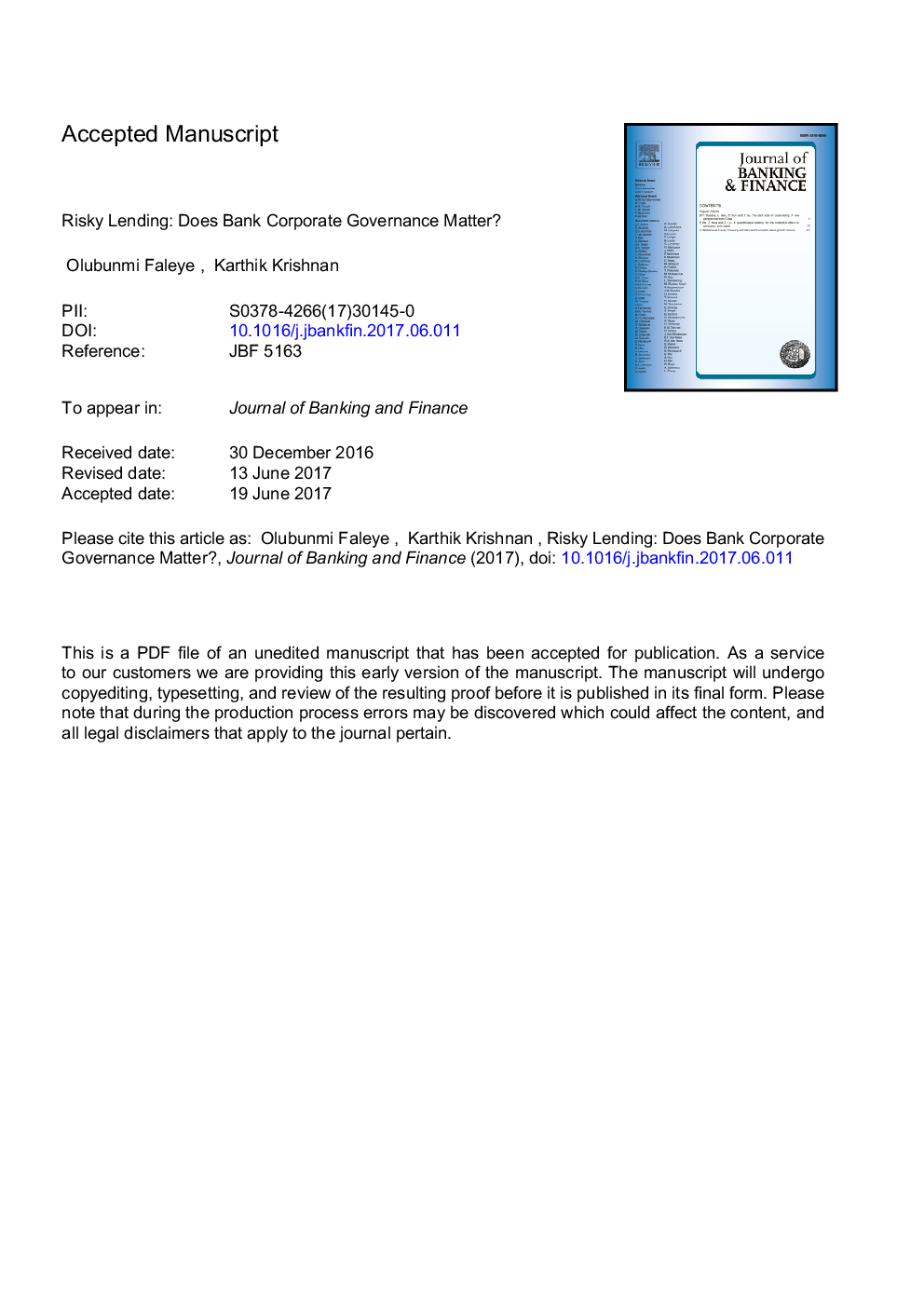| Article ID | Journal | Published Year | Pages | File Type |
|---|---|---|---|---|
| 5088040 | Journal of Banking & Finance | 2017 | 39 Pages |
Abstract
We study the effect of bank governance on risk-taking in commercial lending. Banks with more effective boards are less likely to lend to riskier borrowers. This effect is restricted to periods of distress in the banking industry and is stronger at banks with board-level credit committees. Banks with more effective boards are less likely to lend to riskier borrowers right after the Russian default, which exogenously imposed distress conditions on U.S. banks. Thus, value-maximizing banks appear to ration credit to riskier borrowers precisely when such firms might be credit-constrained, suggesting that bank governance regulations may have potential unintended consequences.
Related Topics
Social Sciences and Humanities
Economics, Econometrics and Finance
Economics and Econometrics
Authors
Olubunmi Faleye, Karthik Krishnan,
